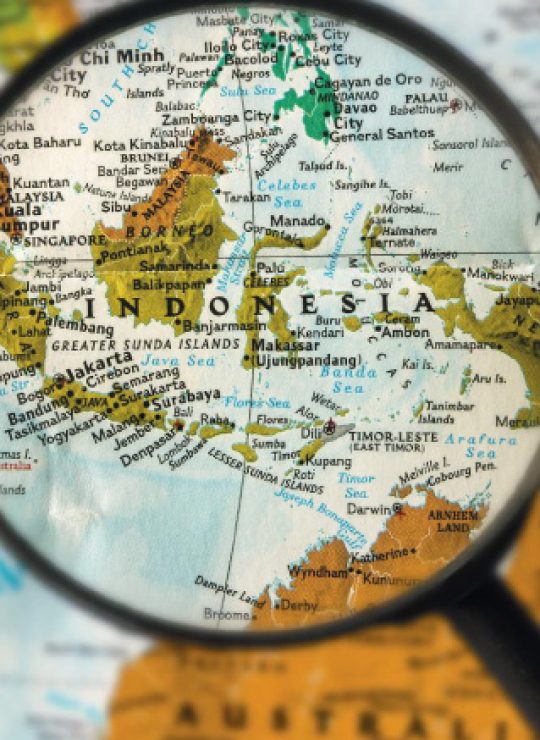Indonesia / Political Outlook of Indonesia
Indonesia Business Guide
- Country Profile
- Membership of Indonesia to Major International Organisation
- Political Outlook of Indonesia
- Economy of Indonesia
- General Sectoral Information
- Information About the Market
- Foreign Trade Policy
- Life in Indonesia
- Turkiye Indonesia Relations
- Diplomatic Relations
- Political Relations
- Relations In Education, Culture and Tourism
- Business Relations
- Sectors With Export Potential
In Indonesia, which is defined as a unitary republic according to its Constitution, “Pancasila” (5 principles) is accepted as the constitutional basic principle of the state. Accordingly, the Republic of Indonesia is based on the principles of Belief in the Almighty God, A just and civilized humanity, The unity of Indonesia, Democracy, led by collective wisdom in representation, Social justice for all the peoples of Indonesia.
Presidential elections in the country were held for the first time in 2004 with a direct public vote. The President and Vice President are elected by a referendum for a 5-year term.
The People’s Consultative Assembly (MPR) consists of two chambers: the 560-member House of People’s Representatives (DPR) and the 136-member Regional Representatives’ Council (DPD). The People’s Consultative Assembly meets at least every 5 years and have the powers to amend the Constitution, appoint the President and Vice President, and also dismiss them based on the constitutional provisions. DPR, whose members are elected by a general election, is the main legislature. Enactment of a draft law requires joint approval of DPR members and the President of the State. DPD, which is established by local elections in 34 provinces of Indonesia, can offer legislative proposals to DPR in the areas which concerns regional autonomy such as central – local government relations, formation of regions and management of natural resources.

Indonesia, one of the founding members of the Association of South-East Asian Nations (ASEAN), is the only G-20 member country in ASEAN. Indonesia, which has the world’s 16th largest economy, is also the most populous Muslim-majority country and occupies a strategic location between the Indian and the Pacific Oceans.
Major Political Parties
- Great Indonesia Coalition (Koalisi Indonesia Hebat, KIH)
- Indonesian Democratic Party of Struggle (PDI-P), Partai Golongan Karya (Golkar),
- National Awakening Party (PKB),
- National Democratic Party (NasDem),
- People’s Conscience Party (Hanura),
- National Mandate Party (PAN),
- United Development Party (PPP)
- Red White Coalition (Koalisi Indonesia Merah Putih, KMP)
- Great Indonesian Movement Party (Gerindra),
- Prosperous Justice Party (PKS)
- Democratic Party (PD)




